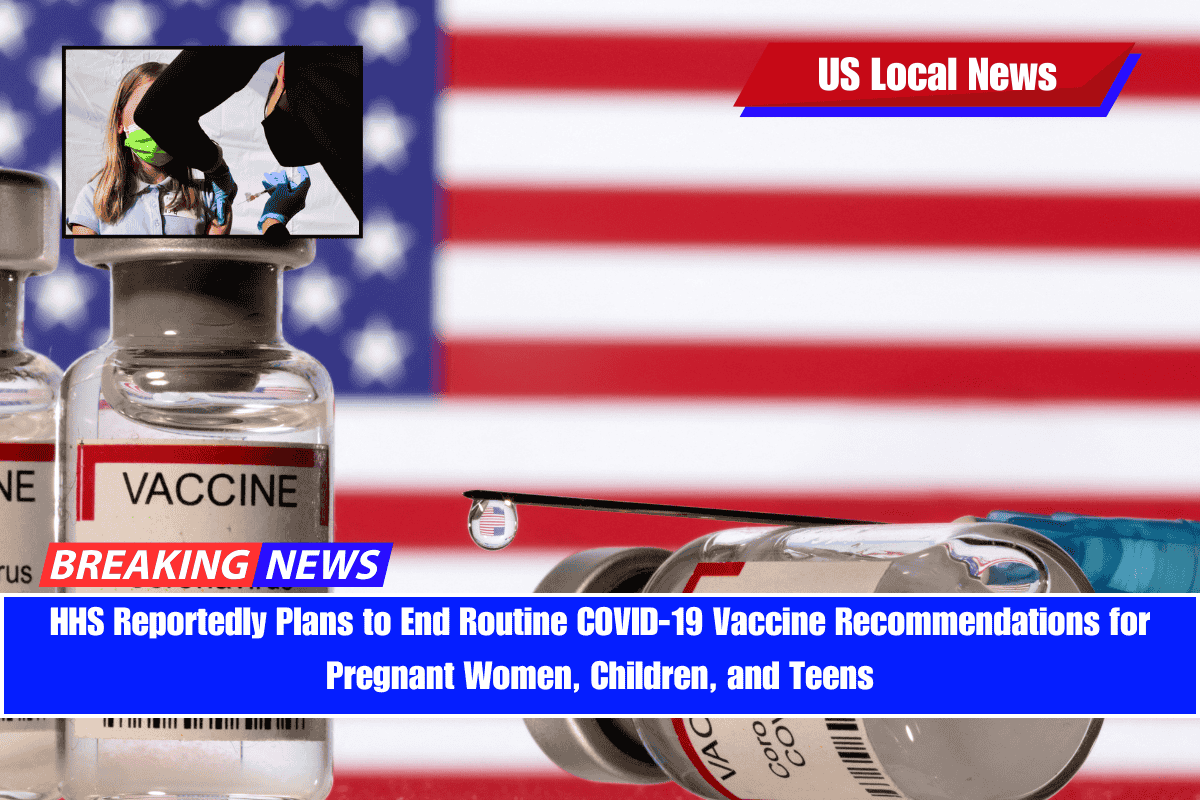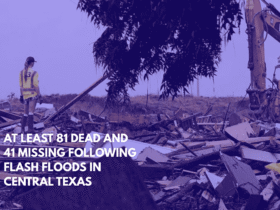The U.S. Department of Health and Human Services (HHS) may soon make a major shift in COVID-19 vaccine guidance, according to a report by The Wall Street Journal. Citing people familiar with the matter, the article claims the agency is preparing to end routine vaccination recommendations for pregnant women, children, and teenagers.
This move, if confirmed, would represent a significant change in federal public health messaging and could have broad implications for vaccine uptake across the country.
What the Current Guidelines Say
At present, the Centers for Disease Control and Prevention (CDC) — which operates under HHS — recommends that everyone aged six months and older receive the updated COVID-19 vaccine, regardless of prior vaccination history. This guidance includes pregnant women, children, and teenagers.
However, the WSJ report suggests HHS may either withdraw this universal recommendation or revise it to encourage individual risk discussions with doctors rather than blanket guidance.
Vaccine Uptake Is Already Low
According to CDC data from April 26, only about 14% of pregnant women and 13% of children had received the updated COVID-19 vaccine. These low numbers reflect ongoing public hesitancy and confusion surrounding the vaccine’s necessity — especially among lower-risk groups.
Who’s Behind the Change?
The potential shift is gaining attention because of HHS leadership. The department is currently headed by Robert F. Kennedy Jr., a well-known vaccine skeptic who has long questioned vaccine safety and public health mandates.
Further concerns come from FDA Commissioner Martin Makary, who has also criticized certain COVID-era policies and opposed vaccine mandates. Under their leadership, the agencies are undergoing a major restructuring, including layoffs that have reportedly affected experienced scientists and regulators.
FDA Changes Also Expected
The Wall Street Journal also reported that the FDA will introduce a new vaccine approval framework next week. The changes are part of the broader overhaul under Kennedy’s direction and have sparked concerns about how vaccine safety and regulation will be handled going forward.
One example of potential disruption is the Novavax vaccine, which has faced delays in getting full FDA approval. The FDA missed its own April 1 deadline for a decision on the shot, and the company is still working with the agency to resolve issues.
What the Vaccine Makers Say
Moderna and Novavax have declined to comment on the reported changes. Pfizer and HHS also did not immediately respond to requests for comment from Reuters.
Currently, the U.S. uses three COVID-19 vaccines: two mRNA-based shots from Pfizer-BioNTech and Moderna, and a protein-based shot from Novavax.
What Could This Mean for the Public?
If the routine recommendation is officially dropped, patients may be asked to consult with their doctors to determine if the vaccine is appropriate for them. While this allows for personalized health care decisions, experts warn it could lead to further confusion or lower vaccination rates, especially among groups already hesitant about vaccines.
Critics argue that changing public health guidance without strong data or clear communication could undermine trust in health institutions.











Leave a Reply